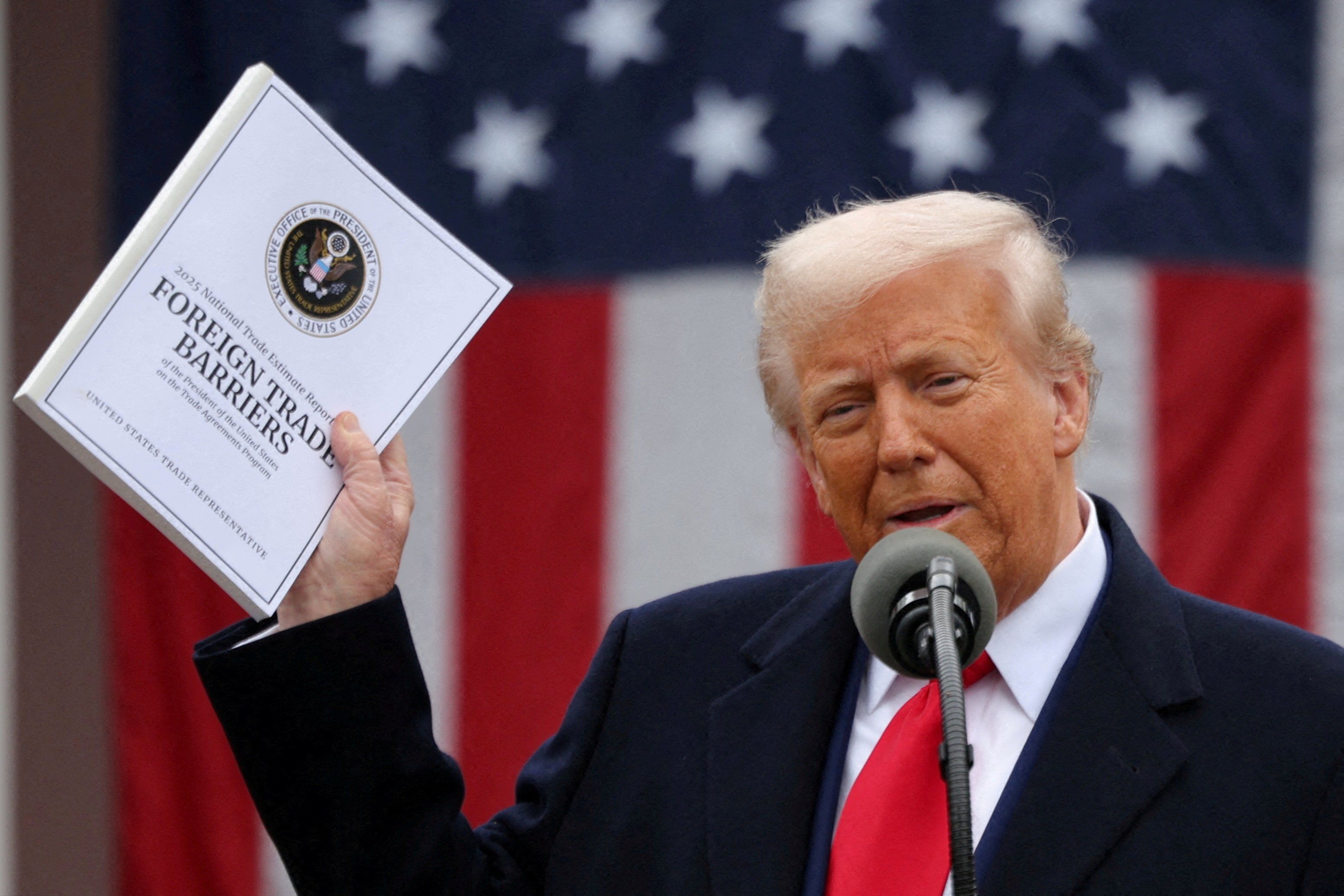A Treasury expert cited by Donald Trump in defense of his tariffs has a message for the president: “They got it wrong.”
Brent Neiman, a Biden-appointed Treasury official, was one of four economic leaders whose work on trade was held up by the president to justify the international charges he levied last week — immediately prompting a now multi-day market plunge.
Neiman took to the New York Times' opinion pages Monday in an effort to distance himself from Trump’s actions.
“It got personal,” he wrote.
“The Office of the U.S. Trade Representative released its methodology and cited an academic paper produced by four economists, including me, seemingly in support of their numbers.
“But they got it wrong. Very wrong. I disagree fundamentally with the government’s trade policy and approach.”
Neiman said his research suggested any tariffs should be much smaller than the figures Trump came up with — a quarter of the size.
He then went on to describe a fundamental lack of understanding from Trump in the economics that he’s dealing with.
Firstly, he’s wrong in his claim that his tariffs would eliminate trade deficits with trading partners, Neiman wrote.
“Trade imbalances between two countries can emerge for many reasons that have nothing to do with protectionism,” he wrote.
“Americans spend more on clothing made in Sri Lanka than Sri Lankans spend on American pharmaceuticals and gas turbines. So what? That pattern reflects differences in natural resources, comparative advantage and development levels. The deficit numbers don’t suggest, let alone prove, unfair competition.”
He went on, “For the sake of argument, let’s grant President Trump his goal of eliminating all trade deficits, no matter how destructive that would be. Could these reciprocal tariffs succeed?
“Again, no. The administration’s tariff formula assumes that a tariff placed on one country won’t affect imports from any others and ignores any implications for exports. These assumptions may work for an action against one small trade partner, but not for the broad salvo announced last week. A large tariff on Japanese auto parts could cause an increase in demand for imports from Mexico and vice versa. And the tariffs clearly invite retaliation and may over time increase the dollar’s value, both factors that would most likely depress U.S. exports.”
He then smacked down the formula that Trump used to figure out the tariffs.
“Alberto Cavallo, Gita Gopinath, Jenny Tang and I studied the tariffs placed on Chinese exports in 2018 and 2019. (This is the “Cavallo et al.” reference in the government’s methodology.) We found that tariffs of, say, 20 percent caused domestic importers to pay nearly 19 percent more. This represents a pass-through into import prices of about 95 percent, which is the value I would have plugged into the government’s tariff formula. In simple terms, that implies that the price paid for U.S. imports would rise almost as much as the tariff rate.
“The administration’s trade office cites our work, but mentions a different result from the paper, which found a low pass-through rate to the listed prices at two retailers. The Trump administration then plugs a rate of 25 percent into its formula. Where does 25 percent come from? Is it related to our work? I don’t know.”
He concluded, “I would strongly prefer that the policy and methodology be scrapped entirely.”
